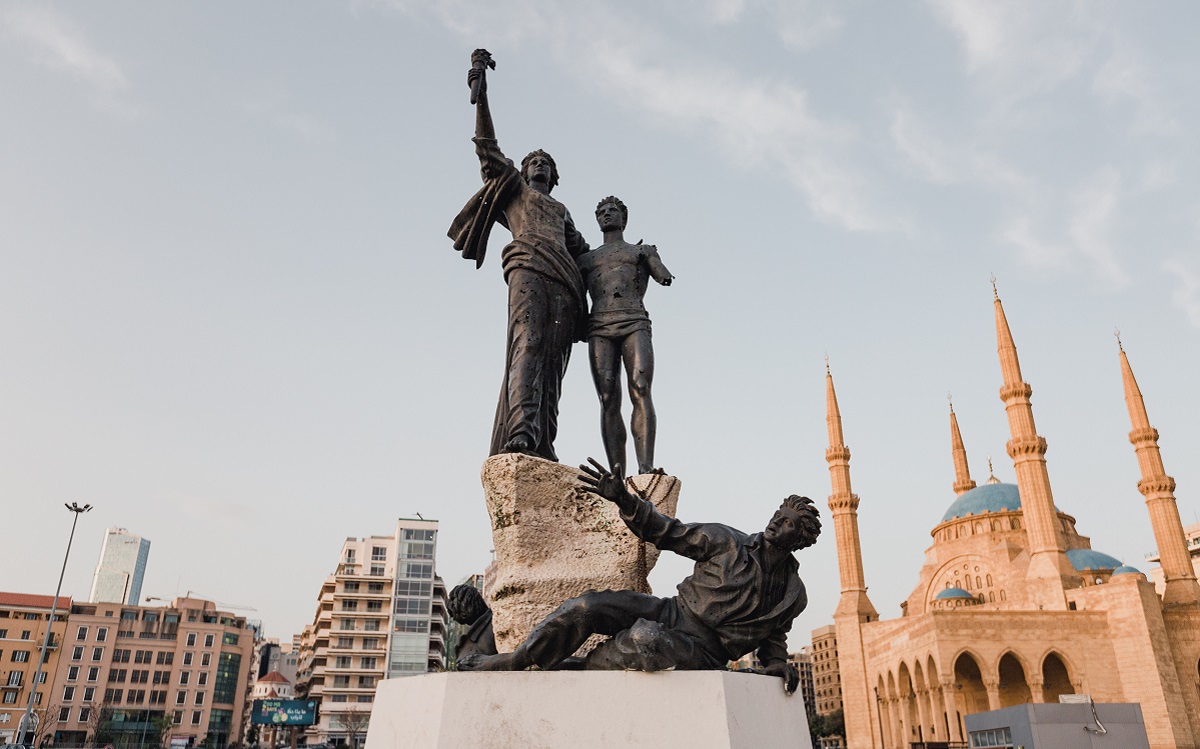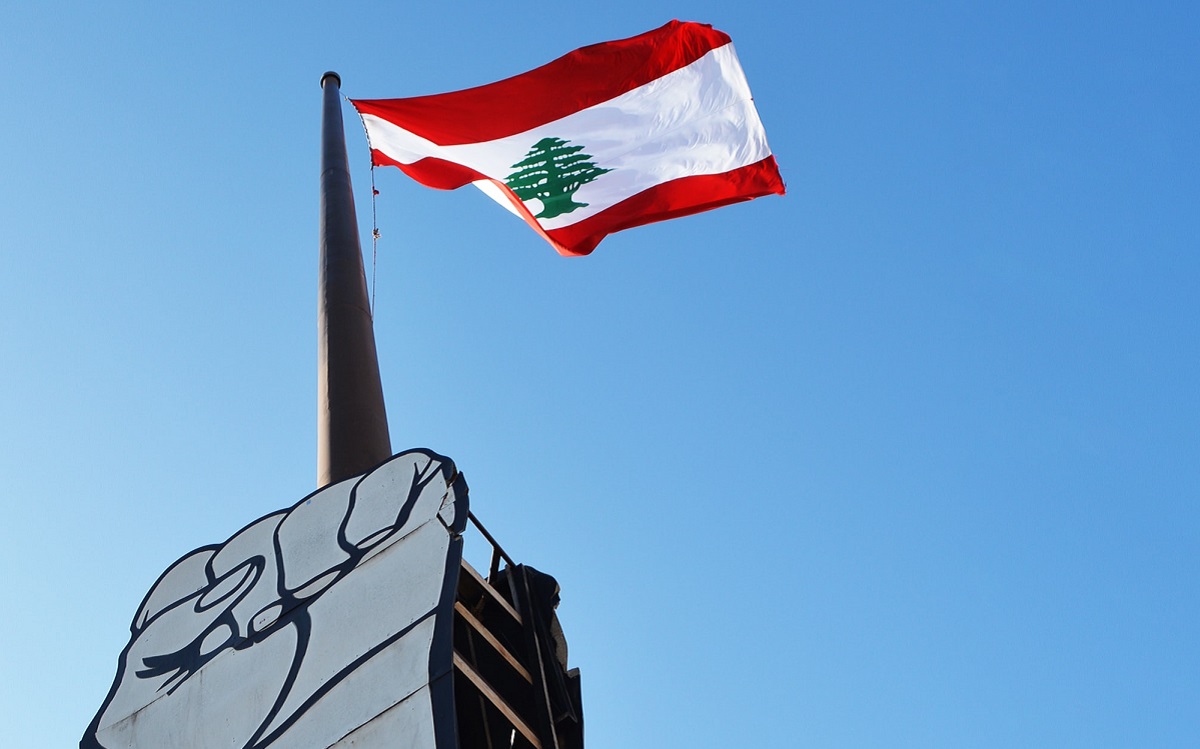
There’s good reason to feel old. Walking through familiar terrain with family, friends and colleagues that have aged…some of us better than others. Strangers rarely strange, comfort and community embraced. United in a desire to see change. Remembering 2015. Holding onto memories from 2005. Slogans and chants that inspired us, updated to each movement’s rhythmic persuasion and prose. Passion that persists, as paralysis turns to collapse.
The sentiment is the same. Rebuilding post-war. Reclaiming our past. Recapturing dignity once embraced and denouncing all that is wrong. The differences among us make us the majority each round.
Independence ‘05.
You Stink ’15.
All Means All ‘19.
Not the multitude of confessions we celebrate, rather the ideas we want to be exchanged. In parliament, debating economic plans. Addressing a social pact that needs adjustment. And a senate that channels sectarianism to its rightful chamber.
Yet corruption, incompetence, dysfunction, and violence now define Lebanon. The worst traits of any society on full display. Protestors continuing to challenge and fight for decency and justice. Less on the street today and more online, but with time, the institutions we need to function have crippled to failure.
It is important to acknowledge each try
When former Syrian president Hafez al-Assad determined our fate following the civil war through political suffocation, intelligence operations and assassinations, we stood up and demanded an end to the occupation.
Chants born out of March 14, 2005 were for independence, dignity and reform. Samir Kassir was March 14. Social justice and gentler economics made it a unifying revolt. Political parties that claimed ownership afterwards were given their chance once Syria’s army and mukhabarat left Lebanon. Yet they failed to live up to repeated electoral wins and embraced a hindered vision blurred to blindness.
A shifting emphasis from sovereignty to accountability defined the years thereafter. The same issues presided, yet hesitancy towards addressing the last militia’s capabilities narrowed the focus.
‘You Stink’ in 2015 saw many of the same protestors back in Martyrs Square. Civil society now engaged through years of grassroots politics, expressing itself through ‘Beirut Madinati’, challenging unbearable corruption, environmental degradation, and a massive trash crisis.
Those protests remained local to Beirut, but they planted the seeds of what was to come. And four years later, a perfect storm of forest fires, failing currency, and a devilish dance to false unity among political foes tested our limits. Once a proposed WhatsApp tax was floated in October 2019 a nation fed up with rampant failure, false promises, and fiscal collapse had its final straw.
For the first time in Lebanon’s history, large swathes of the country rose up to a unifying chant: ‘Kellun yaane kellun’. A meteoric crash that reimagined Lebanon. A revolutionary explosion rendering The Dinosaur extinct. The old guard…lethargic, sluggish and obsessed with confession.
Embodying our post-civil war decay. Derided as defunct on split screens across the country. Symbolically hanged in Martyrs Square without martyrdom and slurred with splendor and sway. Given no further chance to persuade. Chants corroding their once-feared authority.

And from those ashes rose The Anarchist
No phoenix this round. A fluid, scattered youth without leadership, made up of post-war millennials without memory of civil strife. Unafraid of cautionary tales of clashes, checkpoints and ‘khat temes’. Aware of earlier attempts at change but disinterested in power-sharing lexicon and consensual governance. Anti-sectarian at its core.
The torch had passed from pre-war to post-war, and the bridge in the middle – my generation – expressed our cautionary tales. We acknowledged the youth’s turn in turning away from older ideas, and we equally recognized their poise.
But we had lived through disappointment before. And our hesitancy was born from history.
We were all enraged. Anarchists rightfully criticized Dinosaurs for enhancing our misery. But judging the multiple failures of 2005’s reptilians without acknowledging Lebanon’s last militia was short-sighted.
There were journalists, thinkers, intelligence officers and, yes, politicians that had warned against a country that was becoming increasingly ungovernable. Yet their attempts at sincere dialogue were proven impossible with the constant threat of murder. Those earlier champions of accountability were assassinated – one by one – by Hezbollah.
Marching through 2005’s collection of flags no longer resonates. We’ve moved beyond dynasties. But what ties The Anarchist and The Dinosaur together – among long-established party members and burgeoning grassroots revolutionaries – is that we live in a hijacked regime no movement can challenge.
Bridging the generational divide
Civil society initially failed in addressing what we lost when we surrendered our independence to regional war. An overt caution towards Hezbollah’s sensitivities was, in retrospect, misguided.
But they are the one group capable of bridging the generational divide. Citizens who spent years thinking, writing and lecturing on secularism, sectarianism, statecraft and reform.
Holding discussions in downtown’s reclaimed City Center cinema, expressing eloquence in tents throughout Martyrs Square and echoing chants in our majestic and abandoned Grand Theater.
And when the port blast on August 4 decimated Beirut, they swept glass from the streets and offered food and shelter to residents robbed of their homes. They stepped in where the state had opted out.
We are all scarred from hosting a storage dump for Assad’s brutal war. And we live in a country in free fall, a state that has lost control over its most sensitive sites – from its airport and port to its telecoms network and borders. A status quo of paralysis, robbing us from aspirations. And expression targeted again with Lokman Slim’s assassination.
Peaceful protestors and civic-minded activists lose to war. And Lebanon’s war is far from over.
The state that broke down in the early 1970s is the condition that remains. Authority determined by militia rather than institutions and army, and government defined by mafia rather than our most talented and brightest. Our security subjugated. Our sovereignty undermined. And our once-celebrated prosperity replaced with ruin.
The Anarchist and The Dinosaur are hostages to the same machine. One goes extinct while the other barely breathes. And any future revolt will be destroyed by the same formidable force that turned deliberation to death.
That civil society has the experience – and willingness – to turn activism to political authority makes them the natural opposition.
They rightfully turned their backs to the old guard years ago. They are guiding the youth through campaign strategies and upcoming elections. And when this country rises again, with millions of us in sight, it will face the primary obstacle that curtailed movements before.
A proxy that inherited an occupation. And the protector of our post-war disorder.
Ronnie Chatah hosts The Beirut Banyan podcast, a series of storytelling episodes and long-form conversations that reflect on all that is modern Lebanese history. He also leads the WalkBeirut tour, a four-hour narration of Beirut’s rich and troubled past. His recent writings have appeared in L’Orient Today and Newlines Magazine. He is on Facebook, Instagram and Twitter @thebeirutbanyan.
The opinions expressed are those of the author only and do not necessarily reflect the views of NOW.







